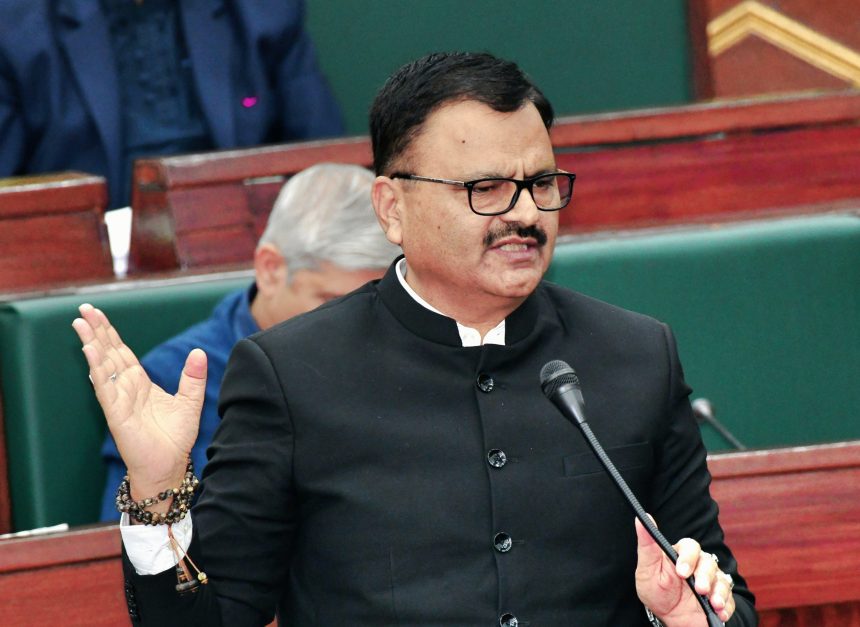Srinagar, Jul 18: Jammu and Kashmir’s Public Health Engineering and Forest Minister Javid Rana on Friday said the Union Territory has suffered the worst consequences of the Indus Water Treaty. He urged for corrective measures to address the losses caused by the decades-old agreement.
Speaking to reporters here during the inauguration of 1,000 completed Jal Shakti schemes across J&K, Rana said the biggest loss of the Indus Water Treaty has been to Jammu and Kashmir. “We would like the loss due to the Indus Water Treaty should be rectified,” he said.
The minister said the Indus agreement, signed decades ago between India and Pakistan, has severely limited J&K’s ability to fully harness its water resources for irrigation, drinking water, and hydropower development. “Better decisions need to be taken now in the interest of the people of Jammu and Kashmir,” he said.
Rana was speaking at a function to mark the dedication of the first 1,000 Jal Shakti schemes to the public out of a total of 3,200 schemes currently underway. “Today, we are going to inaugurate 1,000 Jal Shakti schemes. These are now complete, and we are handing them over to the public,” he said.
Lauding the pace of development under the Omar Abdullah-led government, he said all departments, including Forest, Jal Shakti, and Tribal Affairs, are working at a fast pace. “The biggest challenge is to provide clean drinking water, and we are committed to fulfilling this promise,” he said.
Addressing questions regarding concerns raised in the Legislative Assembly about the implementation and progress of Jal Jeevan Mission, Rana said the issue was raised in the Assembly. “A House Committee has been formed to look into it. Whatever findings come, the government will act on them,” he said.
The minister said the Jal Shakti Department is committed to transparency and accountability, and said the Jal Jeevan Commission is actively investigating the concerns. “We will look into the reasons behind the apprehensions and ensure the truth comes out,” he added.
Rana said the government is determined to improve access to clean water and rectify past damages. “Whether it’s clean water, forest protection, or tribal welfare, our aim is to reach every corner of Jammu and Kashmir with better services,” he added.








